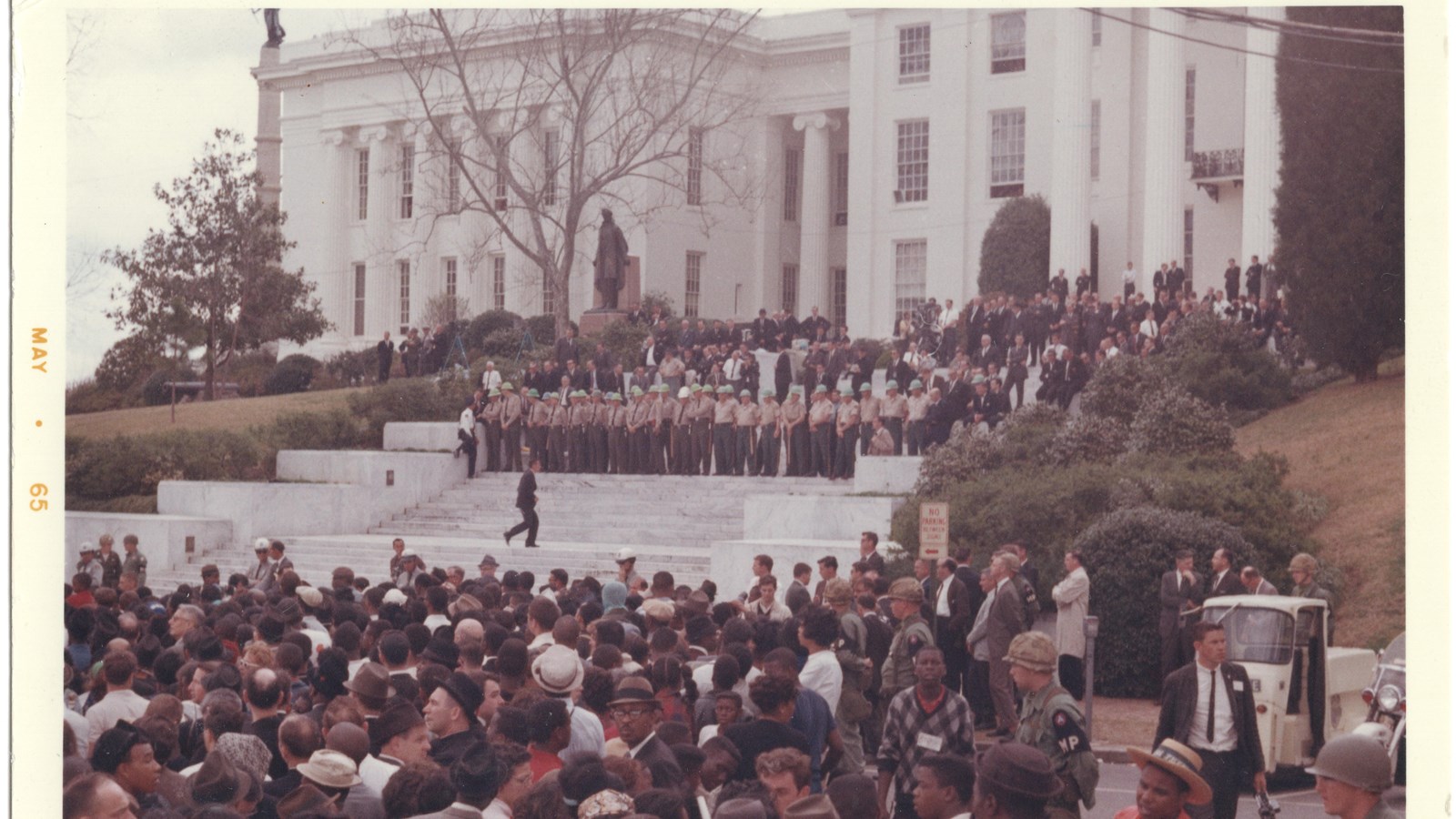Last updated: November 18, 2023
Place
Alabama State Capitol

Photo donated by Mr. Daniel Clancy
Gifts/Souvenirs/Books, Historical/Interpretive Information/Exhibits, Information, Information - Maps Available, Restroom, Restroom - Accessible
On March 25th, 1965, the march arrived at the steps of the Alabama State Capitol!
It is estimated that the marchers' ranks had grown to 10,000 marchers when they arrived at the City of St. Jude, but in the distance and time it took the crowd to march to the Alabama State Capitol, they surged to over 25,000 people in the streets! The final leg of the march down Dexter Avenue passed the bus stop where Rosa Parks stepped into American history, but also passed Dr. Martin Luther King Jr.'s former church - Dexter Avenue Baptist Church.
The marchers were not allowed on the steps at the capitol, so a large flatbed truck was used as a stage in front of the steps. Alabama's Governor George Wallace, a renowned segregationist, did not receive the march or their petitions but was seen peeking out from behind his office windows. On the flatbed truck, several speeches were given by Reverend Ralph Abernathy, John Lewis, Fred Shuttlesworth, Rosa Parks, and other leaders of the Civil Rights Movement. Dr. Martin Luther King, Jr. also gave his well-received "Our God is Marching On" speech, alternately known by the name of "How Long? Not Long!".
With the rally completed, the Selma to Montgomery March concluded. The eyes of the nation turned from Alabama to Washington, D.C.. On March 17th, 1965 the Voting Rights Act was introduced to the Senate. The Bill would be modified slightly but would pass the Senate and House of Representatives and sent to President Lyndon B. Johnson.
President Lyndon B. Johnson signed the Voting Rights Act into law on August 6th, 1965, while surrounded by many Civil Rights leaders and supporters, including Dr. Martin Luther King, Jr. The Voting Rights Act of 1965 expressly prohibits racial discrimination in voting, and outlawed many tactics used in the South including poll taxes, literacy tests, moral character tests, and more. It prohibited selected regions in the South from creating laws, policies, or procedures to disenfranchise or impede minority voters from their right to vote, enabling any American to vote.
